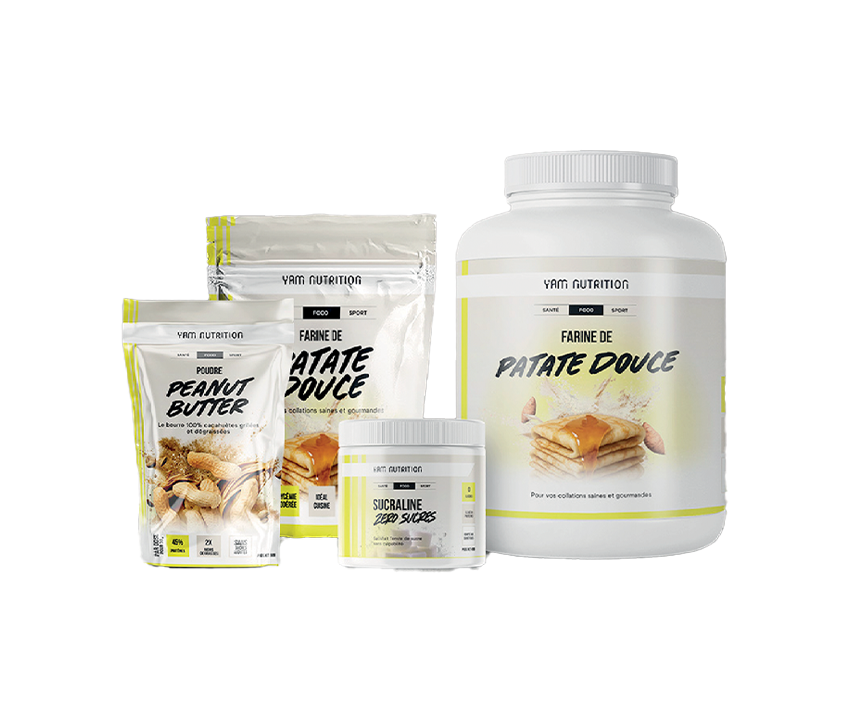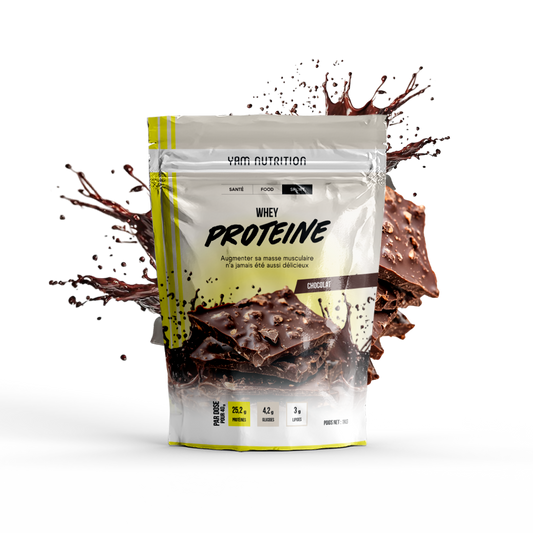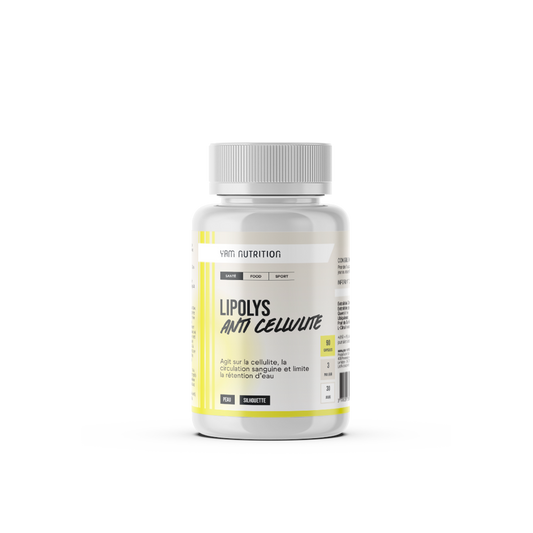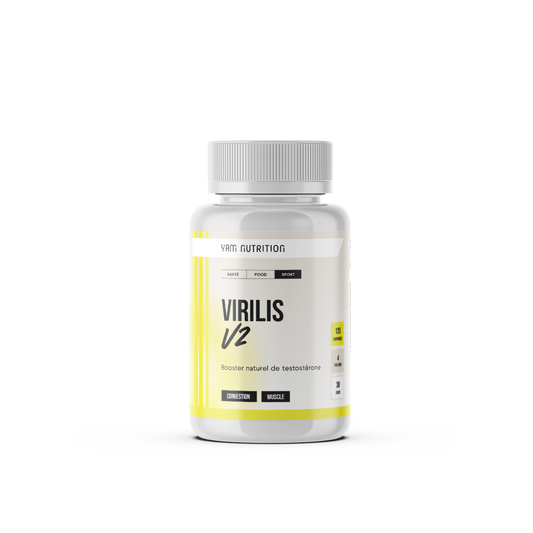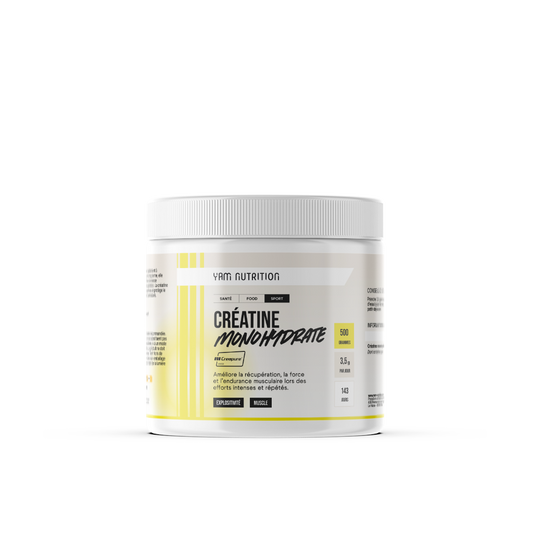How to interpret scientific studies that discuss sports nutrition?

Sommaire
- Scientific research provides multiple answers, depending on the subject considered and the context.
- Scientific and clinical studies or studies on animals take into account a large number of subjects, as opposed to the specific aspects of an individual.
- Sports nutrition is a field that benefits from scientific research conducted by researchers whose seriousness and reputation are well established.
- Scientific studies in sports nutrition have provided significant evidence on dietary supplements.
- Can some of the answers from scientific studies be applied to the daily expectations of athletes?
- Our position at YAM Nutrition regarding scientific studies
- YAM Nutrition focuses on innovation with Epi-Myo-Statin and nutraceuticals
- YAM Nutrition nutraceuticals and nutracosmetics for skin health
Most bodybuilding or Crossfit enthusiasts often appreciate the fact that they can rely on solid evidence and not on near-certainties or at least on effects demonstrated by scientific research when purchasing dietary supplements. This is the case, for example, for creatine , beta-alanine, protein or food supplements intended for post-exercise recovery. However, it must first be said that science and scientific studies do not provide certain proof but evidence (or lack thereof).
Scientific research, whether on animals or clinical, has never had and will never have the vocation to state an intangible truth on a subject. In which case, it would not be science but scientism, in other words, an inept and sectarian misuse of science. We have had very good examples of this recently. Scientific research puts forward elements of answers to specific questions, which is already appreciable. But in the context of sports nutrition, how can we interpret the discourse and results of science? This is precisely the subject of this article…
Building muscle mass has never been so delicious The natural testosterone booster Improves strength, power and muscular endurance during intense and repeated efforts
Whey Protein
Sale price
From 37,90 €
Virilis V2
29,90 €
Sale price
29,90 €
Creatine Monohydrate Creapure®
Sale price
34,90 €
Scientific research provides multiple answers, depending on the subject considered and the context.
The data put forward by scientific research, whether clinical or conducted on animals, remain and will be in most cases, general and global. Conducted on rodents, the studies are relevant given that these animals share at least 95% of their genetic heritage with us; the average being closer to 98%. As for clinical studies, the studies are based on a generally small panel of subjects, on average 15 to 30 people, sometimes more, to deal with a very specific subject.
The majority of scientific and clinical studies of the sports nutrition use this type of quota, particularly with regard to molecules that you know well, such as creatine , isolated amino acids, beta-alanine or proteins, whey , casein, etc. A broader panel often proves useless, given that these are not epidemiological studies. On the other hand, you represent a unique case, both genetically and physiologically, metabolically and morphologically. As a result, clinical studies are not entirely transposable in any way and to anyone. They represent significant averages in terms of the elements they put forward.
Scientific and clinical studies or studies on animals take into account a large number of subjects, as opposed to the specific aspects of an individual.
This relative opposition between the individual and a group of test individuals or subjects is, however, inevitable. No quality scientific study is based on the case of a single individual, unless a particular context requires it. However, clinical or animal studies provide data that allow conclusions to be drawn on the presented hypothesis. Naturally, there are no conclusions, and even fewer studies that allow definitive conclusions to be drawn. A large number of subjects used will allow statistically significant elements to be obtained, in order to state reliable elements. Be careful, however, because the objective of science has never been to state truths but to put forward reasonable evidence. This evidence will be valid until it is contradicted; unless other evidence comes to consolidate the first ones.
Sports nutrition is a field that benefits from scientific research conducted by researchers whose seriousness and reputation are well established.
In the field of sports nutrition, a large number of scientific studies are sponsored by brands, which may find themselves involved in potential conflicts of interest. However, there is no reason to suspect malfeasance or conflicts of interest a priori. Some scientific research on sports nutrition comes from public (and private) funds, but it must be said that private investors contribute significantly to the advances in scientific research in our particular field of sports and nutrition. Without them, many of the clinical studies we are currently experiencing would never have been conducted.
Scientific studies in sports nutrition have provided significant evidence on dietary supplements.
Consider, for example, the positive results we've obtained from clinical studies on creatine. These dozens of clinical studies have proven its effectiveness on strength and muscle mass gain. This is also the case for whey proteins or the metabolism of isolated amino acids like leucine, for example. For certain molecules, there are sometimes still gray areas or lack of clinical evidence. This is the case, for example, for HMB, natural HGH secretagogues like OKG (ornithine ketoglutarate) or arginine, soy isoflavones, or for certain plant adaptogens like Suma, Rhodiola rosea, Ginseng, or other molecules.
Many other topics and themes have been studied by science in relation to sports nutrition . But on a personal and athletic level, what should we learn from scientific research?
Can some of the answers from scientific studies be applied to the daily expectations of athletes?
Naturally, bodybuilders generally consume more food supplements than other athletes. They are therefore also more demanding of reliable scientific information regarding the nutritional supplements they take. As we said above, some scientific study topics such as creatine, proteins or carbohydrates are no longer debated while the controversy persists for other supplements. Overall, we must know how to remain patient and attentive to scientific advances and, on the other hand, we must also know how to put things into perspective by admitting that clinical research provides concrete elements for certain subjects while in others, it would be preferable to wait for other elements of proof.
To some extent, you should also try to separate the wheat from the chaff by taking a step back from the results of scientific studies, especially when the researchers' conclusions seem too good to be true or too far removed from a medical reality that has been proven for decades. This is the case, for example, when studies conducted on natural substances come very close to results obtained with illegal doping substances. Therefore, there is reason to express serious doubts about the methodology or credibility of the clinical studies conducted.
Our position at YAM Nutrition regarding scientific studies
At Yam Nutrition, our goal is to offer you dietary supplements whose effectiveness is based on advances in science and the evidence it provides us. It is with this in mind that we developed Virilis and then Virilis V2 . Our first objective was to gather the facts and clinical studies that seemed to us to be the most convincing on the subject of the release of natural testosterone by the body, while also taking into account the phenomena of hormonal conversion of aromatization. We tried to optimize several areas related to hormonal secretion based on facts presented by reliable clinical studies.
Scientific studies have also shown that simple nutrients such as vitamin D, zinc and magnesium play a determining role in the natural processes of hormone release and testosterone in particular. Our range of dietary supplements is based on realistic foundations to allow you to obtain realistic results. We do not make false promises nor will we offer you nutritional supplements for which the scientific data at our disposal has not been sufficiently proven. You will therefore not find Tribulus terrestris nor chrysin in our supplements…
YAM Nutrition focuses on innovation with Epi-Myo-Statin and nutraceuticals
Using scientific data is essential, but without real innovation, our range of dietary supplements would be of much less interest to athletes or those who want to benefit from original, useful, and innovative formulas. It is precisely this interest in innovation that led us to develop dietary supplements such as Epi-Myo-Statin, for example. This is a new type of dietary supplement, specifically developed for bodybuilding and mass gain for bodybuilders. Indeed, scientific research has shown that simple nutrients such as creatine, EGCG antioxidants green tea or HMB acted to significantly reduce myostatin, a protein that inhibits muscle growth.
YAM Nutrition's Epi-Myo-Statin isn't a miracle product, though. It's simply an application of the scientific data available to us. Like our entire range of nutritional supplements, Epi-Myo-Statin will provide you with significant and serious assistance in your quest for a better physique. It's worth noting that athletic performance isn't the only focus of our dietary supplements. Nutraceuticals are also a priority at YAM Nutrition...
YAM Nutrition nutraceuticals and nutracosmetics for skin health
Food supplements such as Lipolys and Skin Nutritive have also been formulated according to the scientific data and studies available to us, particularly regarding the effects of antioxidants. Indeed, nutraceuticals are molecules specifically integrated into certain nutritional supplements, which meet a specific and well-defined objective. This concerns skin health for Skin Nutritive and cellulite for Lipolys. On this subject, we can also talk about nutracosmetics , that is to say nutrients related to the cosmetic aspect of the body, and the health of the skin in particular. We could still multiply the examples but you should especially know that YAM Nutrition does nothing by chance when it comes to formulating a food supplement. In all cases, we make sure to integrate the elements of the scientific research that we believe are best able to help you achieve concrete and credible results with our food supplements...
Eric MALLET
Spécialiste en Nutrition Sportive
